I recently ordered a StarBook Mk VIr2 from Star Labs :
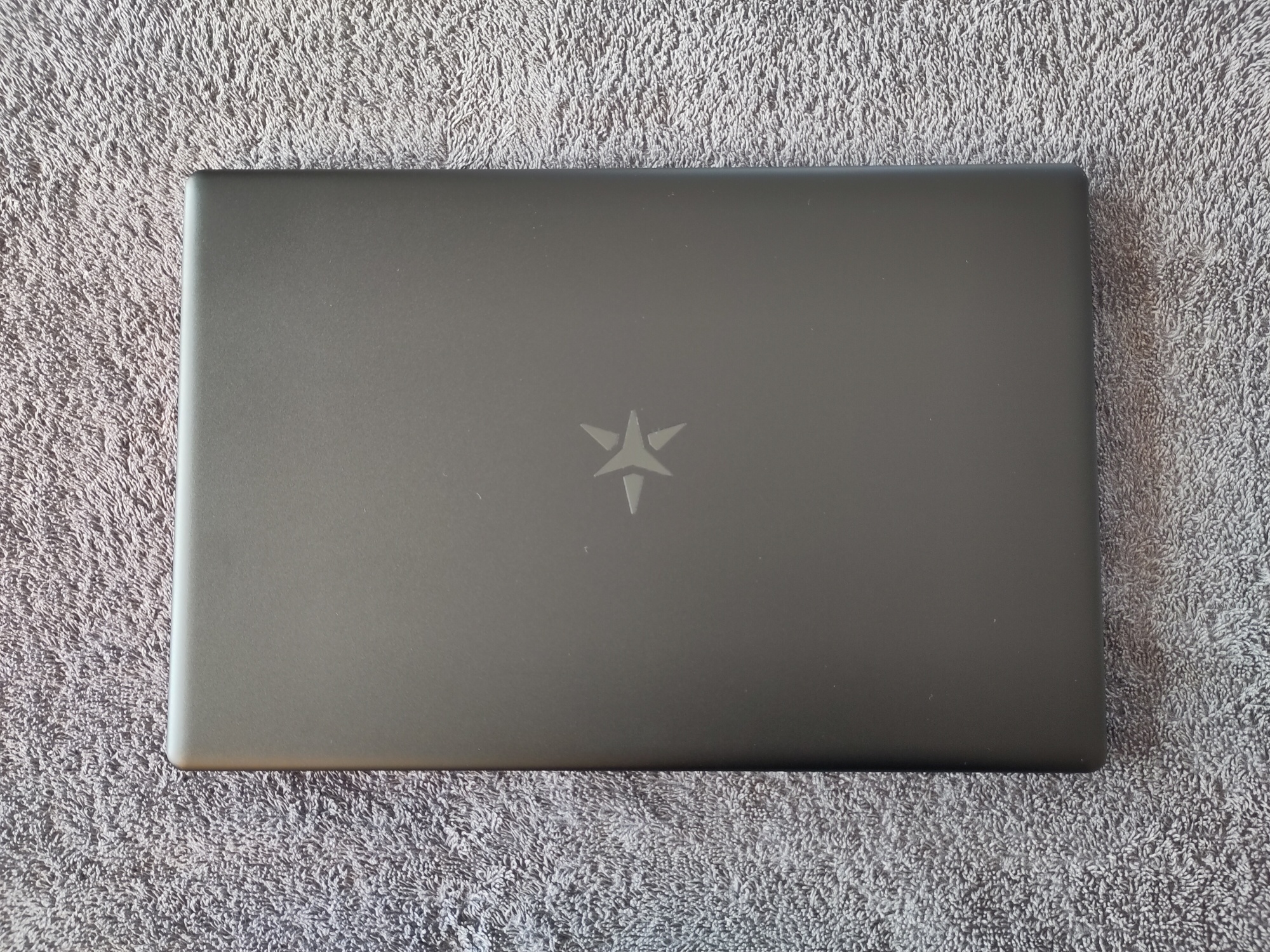
The StarBok Mk VIr2
The StarBok Mk VIr2 has the following specs:
- 64 GB DDR4 RAM @ 3200 MHz (2×32 GB)
- i7-1360P @ 2.20 GHz
- 2 TB Gen4 PCIe SSD
- 14" display
- Ubuntu LTS 22.04.02
- coreboot (instead of AMI firmware)
- US keyboard layout
In comparison, my daily driver for many years has been a Lenovo ThinkPad T470s with the following specs:
- 16 GB DDR4 RAM @ 2133 MHz (2x8 GB)
- i7-7500U @ 2.70 GHz
- 256 GB NVMe
- 14" display
- Debian - initially stretch, upgraded all the way to bookworm
The ThinkPad has served me exceptionally well over the years - nevertheless it was getting old.
Even though I used TLP
, the battery performance slowly but inevitably degraded. Especially working with complex development environments more and more often brought the ThinkPad to its resource limits. Not to mention the rather limited disk space.
Ultimately I decided against replacing/upgrading individual components and began searching for alternatives. Being a ThinkPad user since the IBM days, I was ready for something different and the StarBook made a good impression.
Especially their Linux support and Open Source approach seemed interesting.
First Impressions
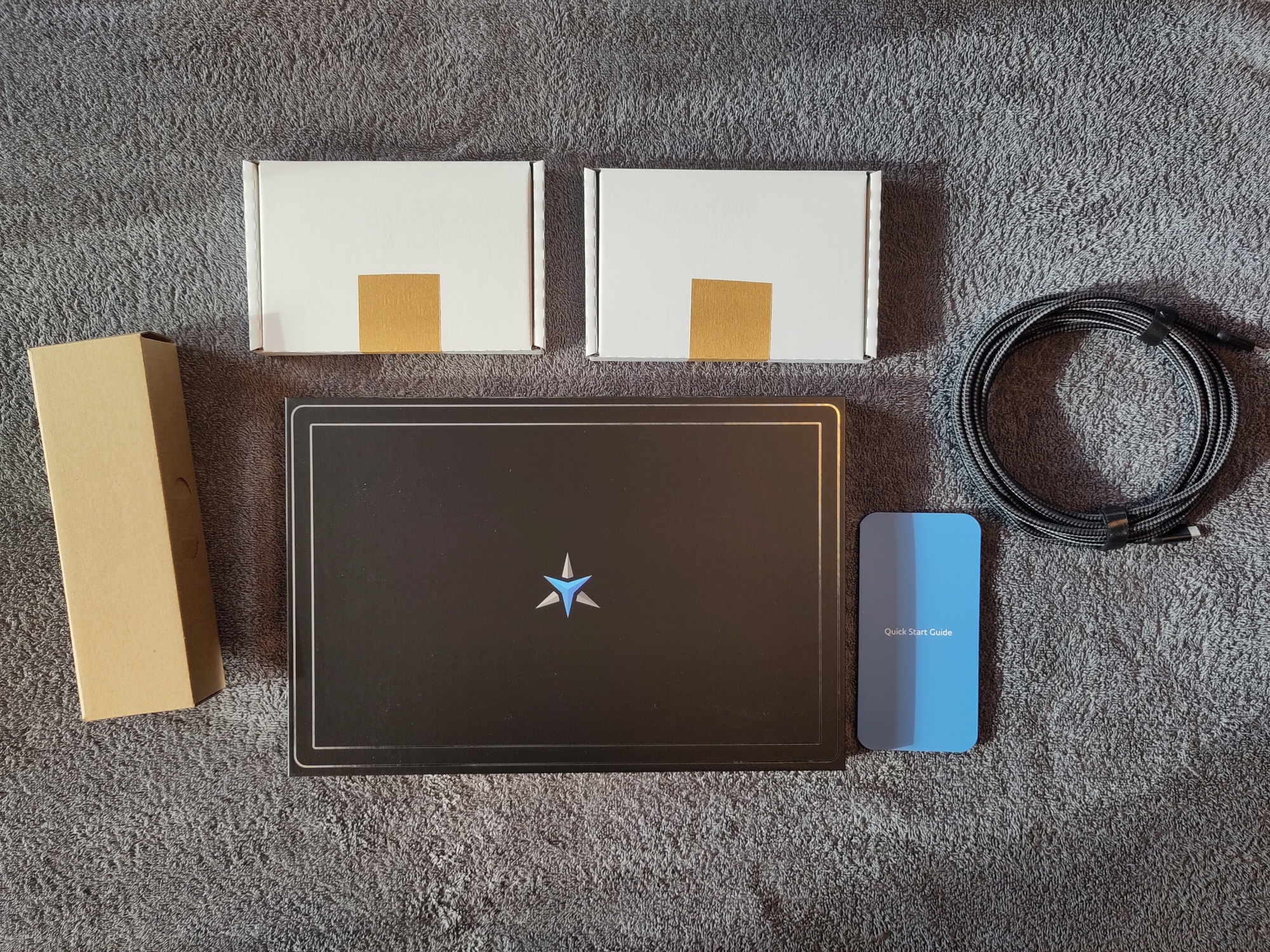
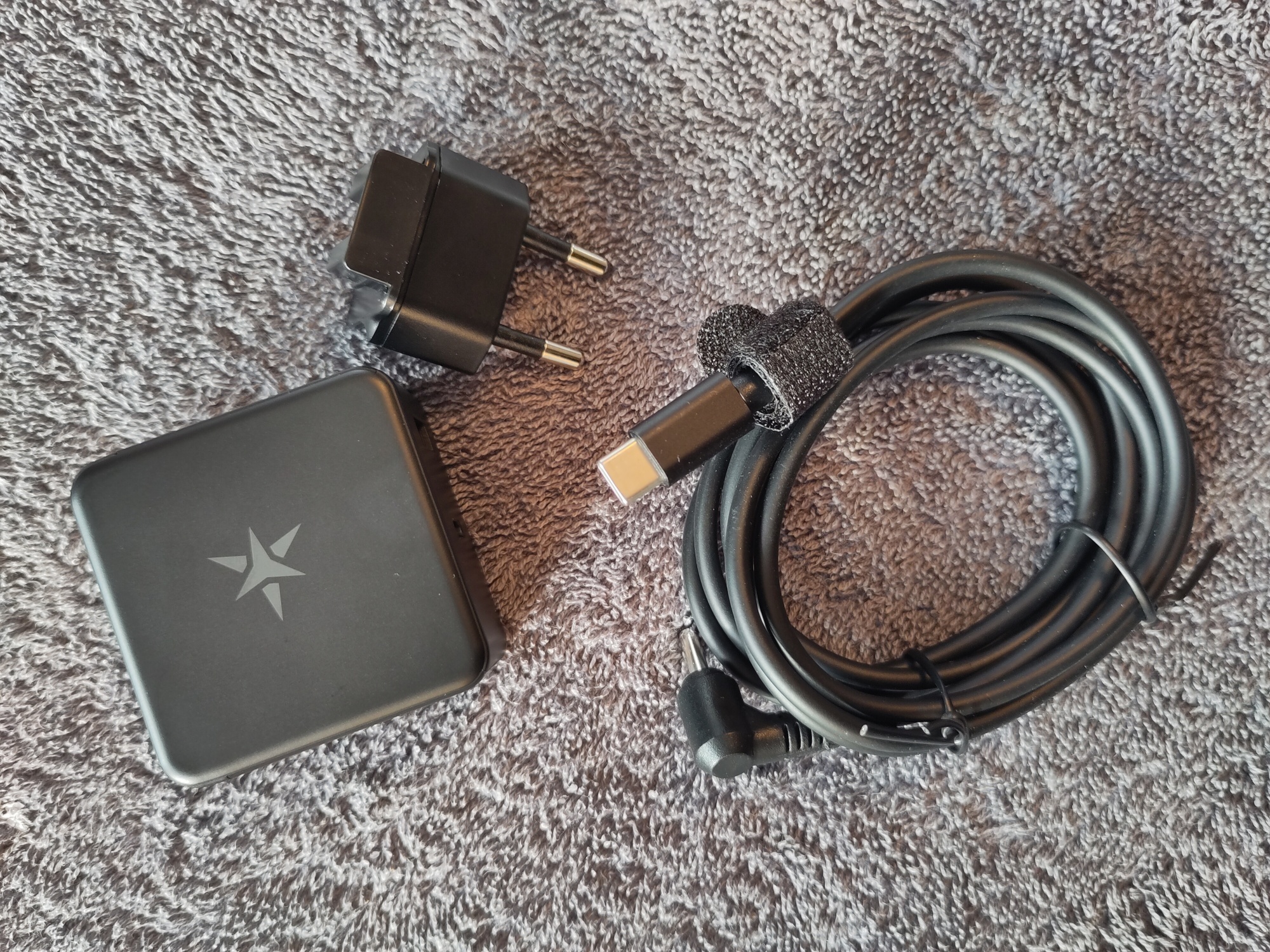
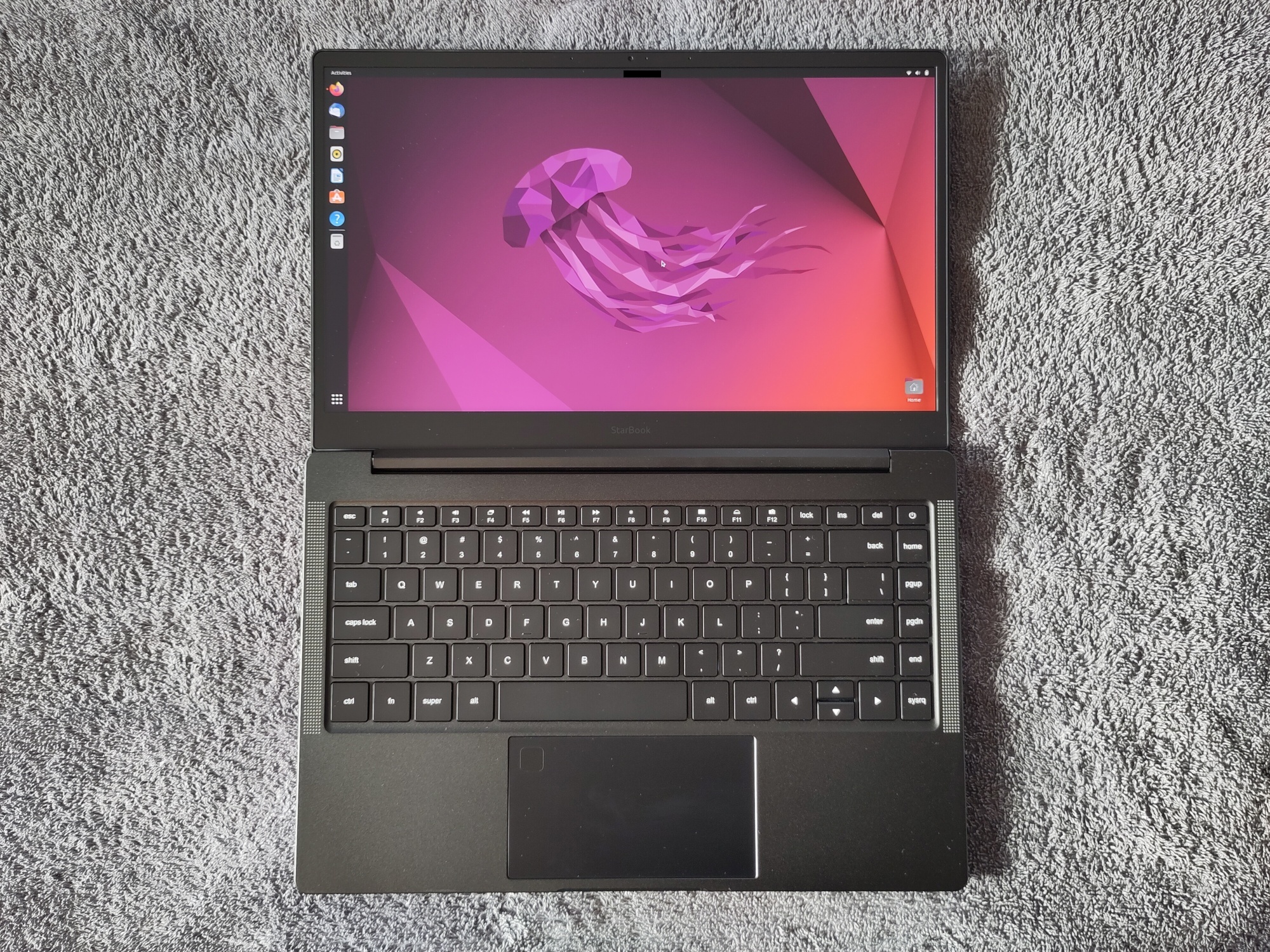
One thing I immediately noticed is, that the StarBook is a fingerprint magnet. Keyboard and lid looked kind of smudgy after just a few touches.
Apart from that, the Star Book seems to be very solidly manufactured, definitely on a par with the Thinkpad.
Installing Debian
I used Debian 12.2 (Kernel: 6.1.0-13-amd64) and completely wiped the existing Ubuntu installation. Since the netinst variant only contains a minimal set of packages some things had to be installed and setup manually.
Touchpad
The touchpad was working but its functionality was limited, e.g. area clicks weren’t correctly identified and right clicks with two fingers weren’t working.
This was due to missing libinput-tools:
apt-get install libinput-tools libinput-pad-1.0.1
Fingerprint Reader
For the fingerprint reader to work fprintd needs to be installed:
apt-get install fprintd libpam-fprintd
The fingerprint reader is embedded in the upper left corner of the touchpad.
Fingerprints for the currently logged in user can be registered using fprintd-enroll.
To use fingerprints for the gdm login it is required to run pam-auth-update and select Fingerprint authentication.
Unfortunately there seems to be a limitation in libfprint-2-2 (version 1:1.94.5-1) which does not allow to enroll identical fingerprints to multiple user accounts.
When attempting to do so, fprintd-enroll either aborts with enroll-unknown-error or refuses the fingerprint as duplicate.
Firmware Updates
Star Labs provides firmware updates via the Linux Vendor Firmware Service (LVFS): https://fwupd.org/lvfs/devices/com.starlabs.B62-I.coreboot
fwupd and flashrom have to be installed but initially failed to detect coreboot:
# fwupdmgr update
Devices with no available firmware updates:
• Star Drive PCIe SSD
No updatable devices
This is due to the flashrom plugin being disabled as it doesn’t find the required hardware:
# fwupdmgr get-plugins | grep flashrom -A 6
flashrom:
Flags: • Disabled
• Required hardware was not found
• Enabled if hardware matches
• Loaded from an external module
• Will measure elements of system integrity around an update
fwupd comes with some builtin Quirks
(see /usr/share/fwupd/quirks.d/builtin.quirk.gz) but apparently this doesn’t contain anything related to the StarBook Mk VIr2.
The Star Labs support team quickly identified the issue. Since the Mk VIr2 is quite new the corresponding quirks need to be downloaded manually:
wget https://github.com/fwupd/fwupd/raw/main/plugins/flashrom/flashrom.quirk \
-O /usr/share/fwupd/quirks.d/flashrom.quirk
systemctl restart fwupd
Updates to coreboot require the StarBook being connected to a charger and the battery being charged above a certain threshold.
Everyday Usage
Battery Life
According to https://support.starlabs.systems/kb/faqs/ami-aptio-v-vs-coreboot
the LabTop Mk IV achieved “13 hours and 42 minutes for general use”.
I didn’t get anywhere near this with the StarBook, but also didn’t aggressively tune the various settings for battery life. So far, I’m at around five or six hours, depending on the workload. Additionally, there are probably more battery friendly desktop environments than Gnome.
TLP supports the usual settings like different power profiles depending on whether your’re running on battery or AC. Charging thresholds are unsupported but you may configure a charging threshold via coreboot.
Overall, I can spend much more time on battery again, compared to my ThinkPad. Of course, this is a pretty unfair comparison, given the different capacity, age and levels of battery degradation.
Speakers, Microphone and Camera
The StarBook has stereo speakers which are actually quite decent. Definitely good enough to listen to some music on the go.
Camera and microphone are also really okay. Reviews of older generations of the StarBook mentioned those as being not that good, so I consider this to be a nice improvement.
Especially the camera picture looks better than the one of the (admittedly older) ThinkPad. In low light conditions the picture becomes quite noisy, but it’s still acceptable.
Keyboard
The keyboard is comfortable to type on, but most of the time I use an external keyboard. It also is illuminated which I didn’t see mentioned anywhere, so this was a pleasant suprise. Just like the ThinkPad the backlight has two brightness levels and can be turned off completely.
Since I barely use the right shift key, I remapped it so it behaves like the enter key. In turn it’s harder for me to miss the enter key.
To remap the key I use evremap
with the following configuration:
# device_name = "AT Translated Set 2 keyboard"
phys = "isa0060/serio0/input0"
[[remap]]
input = ["KEY_RIGHTSHIFT"]
output = ["KEY_ENTER"]
By specifying phys the remapping is only done for the builtin keyboard and not external ones.
StarPort 12-port USB-C PD Hub
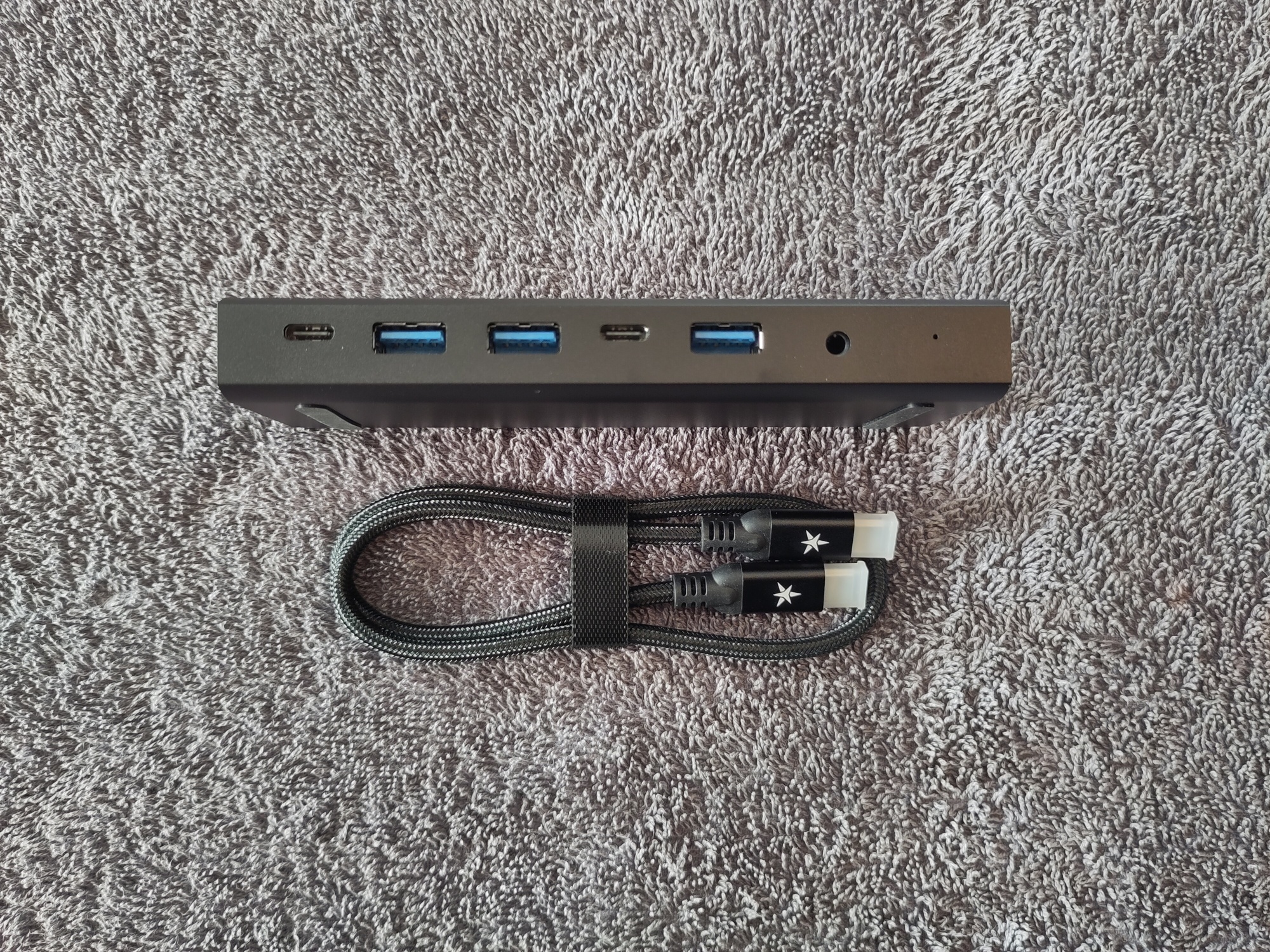
The StarPort hub is quite small so it doesn’t use too much space on the desk.
I use the hub together with three monitors. Two of them connected via HDMI and the third one using DisplayPort.
Unfortunately the StarBook only has a single USB-C port which is required for the StarPort Hub. If you have another USB-C device, e.g. a YubiKey, you would need to plug it into the StarPort Hub.
The hub works well most of the time but occasionally behaves like it was disconnected briefly. This occurs with both of my StarPort Hubs and with different cables, so I assume this is an issue with the Hub itself or something in the interaction between the Hub and the StarBook. Maybe the connected devices draw too much power, but I have yet to identify the root cause.
Also, the three USB-C ports on the hub aren’t labeled. Based on my experience, the USB-C port on the side with the HDMI ports should be used for connecting the charger and the most left USB-C port on the side with the blue led should be used to connect the StarBook.
Once figured out, this is not a big issue.
The Star Port Hub has an audio jack which I’m unable to use with my current 3.5.mm plug because it won’t fit firmly and disconnects. This happens with both hubs but is not the case with the StarBook itself which also has an audio jack.
Miscellaneous
Chromium was barely unusable because it froze for a couple of seconds every now and then. This is probably not an issue specific to the StarBook, but the solution was to disable hardware acceleration in the Chromium settings (chrome://settings/system).
Summary
Overall, I’m quite happy with my decision for the StarBook. It has quickly become my main machine and I’m not looking back to the ThinkPad.
Working with hardware with first class Linux support makes things so much less complicated. In addition, the Star Labs support is great, providing helpful (and swift!) replies.